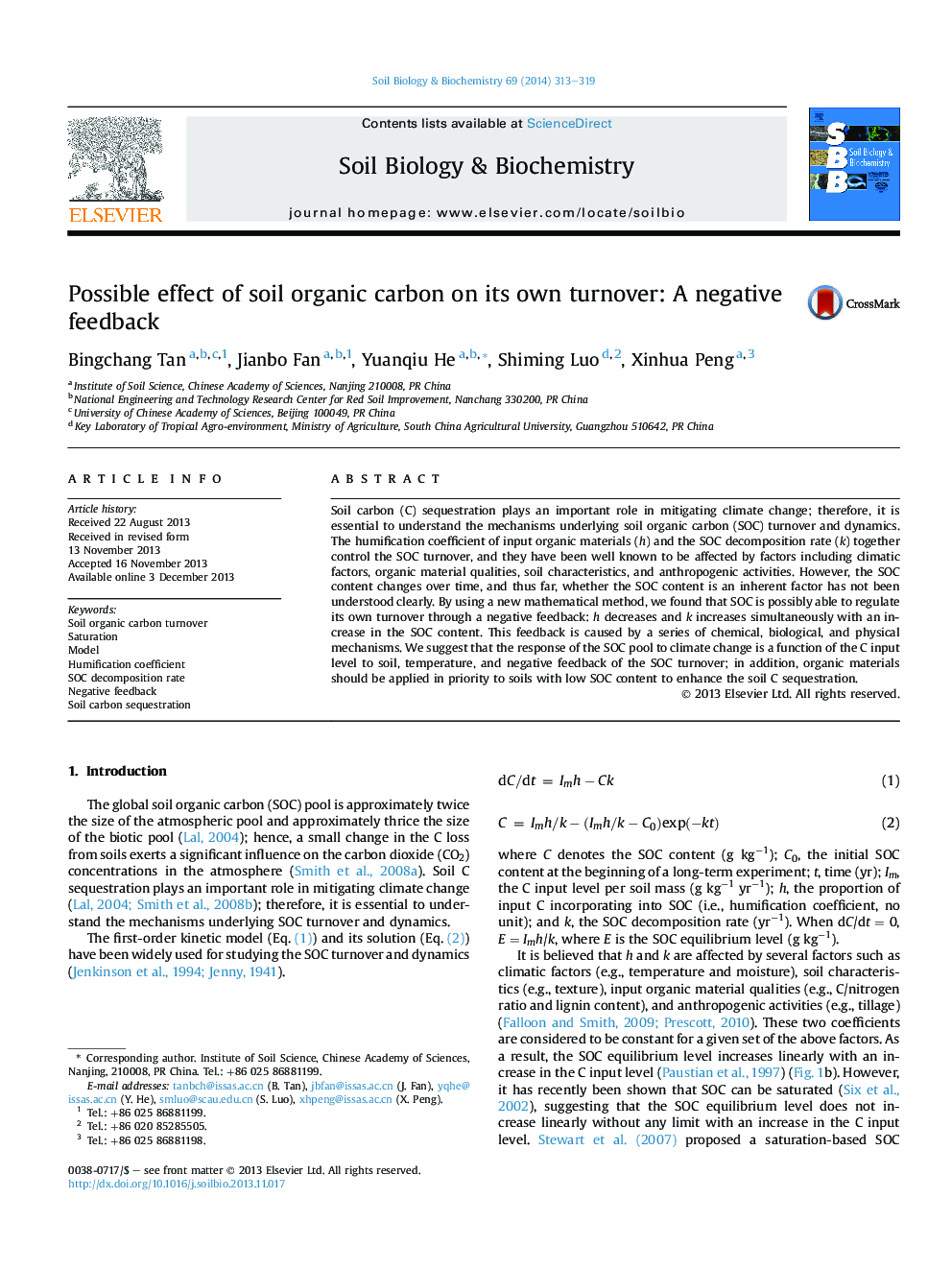| کد مقاله | کد نشریه | سال انتشار | مقاله انگلیسی | نسخه تمام متن |
|---|---|---|---|---|
| 2024741 | 1542615 | 2014 | 7 صفحه PDF | دانلود رایگان |
• A new mathematic method of studying SOC turnover.
• Humification coefficient decreases with the increase in the SOC content.
• SOC decomposition rate increases with the increase in the SOC content.
• The SOC pool response to the climate change is linked with SOC content.
• Explain why soils with low SOC content sequestrate C more efficiently and easily.
Soil carbon (C) sequestration plays an important role in mitigating climate change; therefore, it is essential to understand the mechanisms underlying soil organic carbon (SOC) turnover and dynamics. The humification coefficient of input organic materials (h) and the SOC decomposition rate (k) together control the SOC turnover, and they have been well known to be affected by factors including climatic factors, organic material qualities, soil characteristics, and anthropogenic activities. However, the SOC content changes over time, and thus far, whether the SOC content is an inherent factor has not been understood clearly. By using a new mathematical method, we found that SOC is possibly able to regulate its own turnover through a negative feedback: h decreases and k increases simultaneously with an increase in the SOC content. This feedback is caused by a series of chemical, biological, and physical mechanisms. We suggest that the response of the SOC pool to climate change is a function of the C input level to soil, temperature, and negative feedback of the SOC turnover; in addition, organic materials should be applied in priority to soils with low SOC content to enhance the soil C sequestration.
Journal: Soil Biology and Biochemistry - Volume 69, February 2014, Pages 313–319
